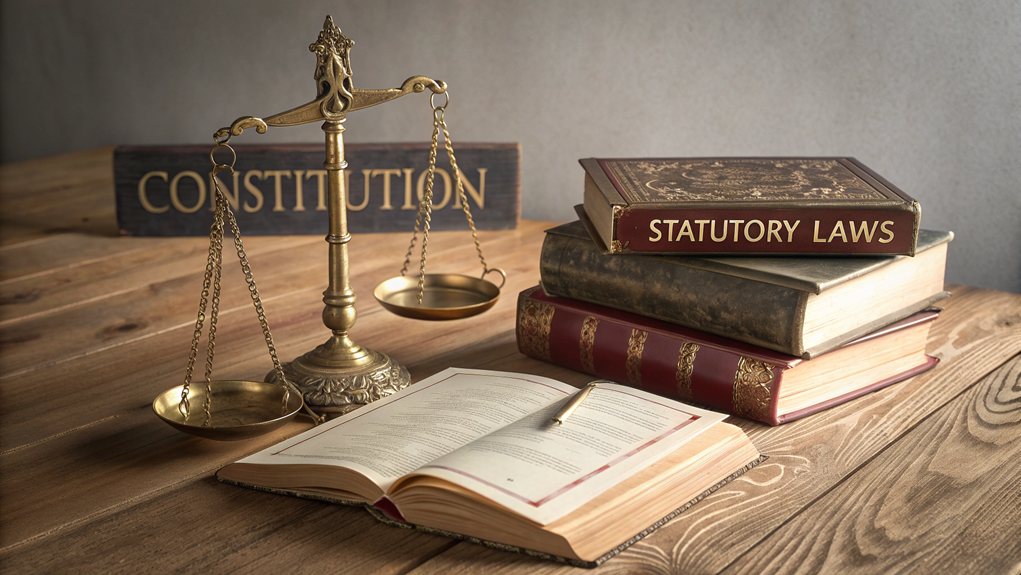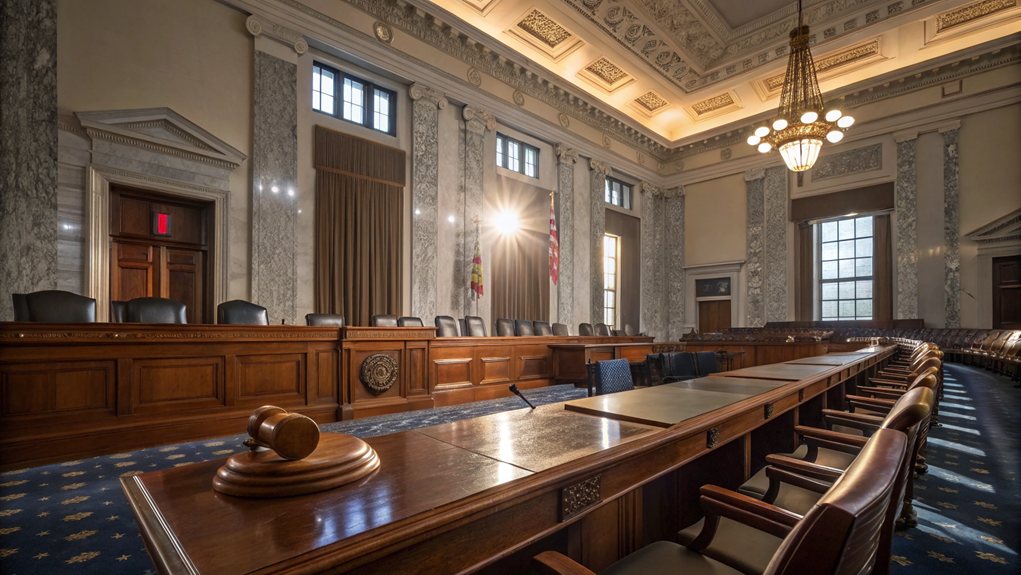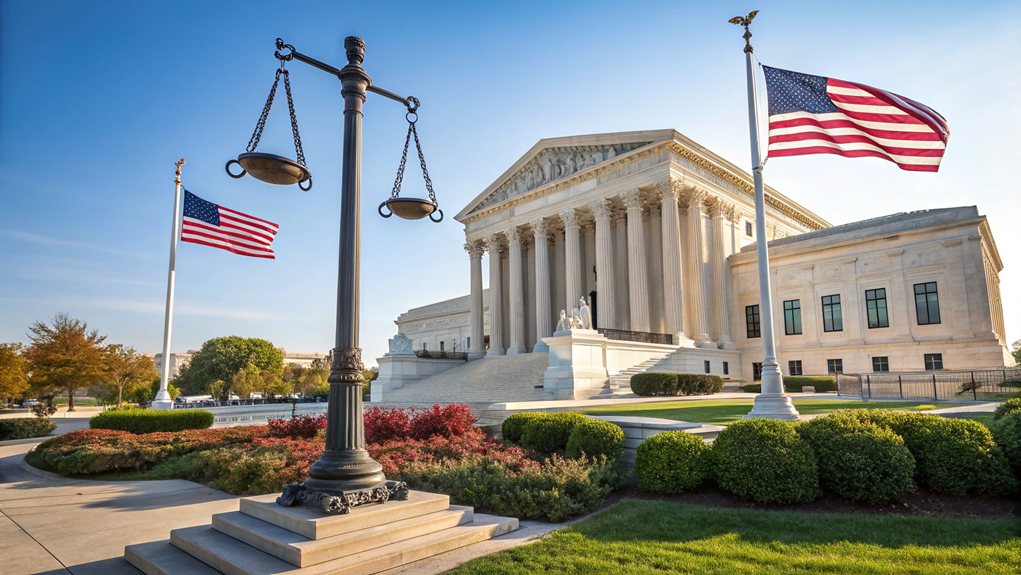Constitutional law is like the big boss. It sets the rules for how the government operates and protects individual rights. Think of it as the ultimate playbook. Statutory law? That's made by legislative bodies. It's specific regulations that guide behavior, like a recipe book—detailed but never more powerful than the constitution. If statutory law clashes with constitutional rights, the big boss wins. Confused? Stick around. There's more to unpack about how these two legal concepts play together.

When it comes to law, people often hear terms like "constitutional" and "statutory," but what do they really mean? Let's break it down.
Constitutional law is all about interpreting, implementing, and respecting a country's constitution. It sets the stage, defining how governments should act and what powers they have. Think of it as the rulebook for everyone in power. In addition to governing these powers, constitutional law also emphasizes the need for a clear division of governmental functions. Constitutional law fundamentally shapes the governance structure and the rights of individuals, setting the overarching legal standards by which all other laws are measured.
Constitutional law serves as the ultimate rulebook, guiding government actions and defining their powers.
Statutory law, on the other hand, is the nitty-gritty stuff. It's the specific laws created by legislative bodies. Imagine a giant cookbook filled with recipes for how to live life—those recipes are statutory laws.
Now, constitutional principles aren't just suggestions. They establish fundamental rights and put the brakes on government overreach. You certainly don't want a government that thinks it can do whatever it wants, right? This is particularly crucial in federal states where the separation of powers ensures that no single branch can dominate.
Statutory law adds detail to the picture, regulating various aspects of society, but it always plays second fiddle to constitutional law. If there's a clash? Spoiler alert: the constitution wins.
Sources of these laws vary. For constitutional law, it's all in the constitution text and the judicial interpretations that follow. Statutory sources are the actual laws passed in legislative sessions.
Customary laws and international influences sometimes mix in, but let's keep it simple. The structure and separation of powers defined by constitutional law guarantee that no single branch—executive, legislative, or judicial—can run wild. Nobody likes a power-hungry leader.
As for rights, constitutional protections like freedom of speech and the right to privacy are pretty significant. Statutory laws can add extra layers of protection, but they can't override constitutional rights.
In the end, courts interpret both constitutional and statutory laws. This judicial review aspect is important. It keeps things in check, and without it, we could end up living in a legal Wild West.
Frequently Asked Questions
How Are Constitutional Laws Amended or Changed?
Constitutional laws don't just change on a whim. It's a big deal. First, Congress needs a two-thirds majority. That's hard.
Or, states can push for a convention. Good luck with that! Then comes ratification—three-fourths of states have to agree.
If that sounds like a maze, it is. Plus, some parts of the Constitution are untouchable.
What Role Do Courts Play in Statutory Law?
Courts play an essential role in statutory law. They dig into the text, looking for the plain meaning of words.
If things get murky, they pull out legislative history like it's a magic eight ball. The goal? To stick to what Congress intended, not what judges fancy. They avoid absurd interpretations—because who wants to look foolish?
Ultimately, court decisions shape how laws work, forcing Congress to react when things go sideways.
Can Statutory Law Override Constitutional Law?
Statutory law can't just waltz in and override constitutional law. That's a big no-no.
The Constitution sits at the top of the legal food chain, like the boss at a corporate meeting. Courts are the watchdogs here, ready to bark if a statute tries to play fast and loose with constitutional rights.
How Do International Laws Affect Constitutional and Statutory Law?
International laws strut into the arena of constitutional and statutory law, but they don't always get their way. Constitutions usually steal the spotlight, often overriding international obligations.
Statutes can also pull rank, especially if they're newer or directly contradict international rules. Sure, international norms can nudge laws in the right direction, but when push comes to shove, domestic law tends to win.
It's like a legal tug-of-war, and domestic law often comes out on top.
Are There Examples of Conflicts Between Constitutional and Statutory Law?
Conflicts between constitutional and statutory law? Oh, they happen more often than you'd think.
Picture a law that restricts free speech—hello, First Amendment! Courts step in, using judicial review to sort this mess out.
They'll throw out any statute that dares challenge the Constitution. Just look at *Marbury v. Madison*. It's like a legal game of whack-a-mole.
Statute pops up, Constitution smacks it down. That's the legal drama, folks.









